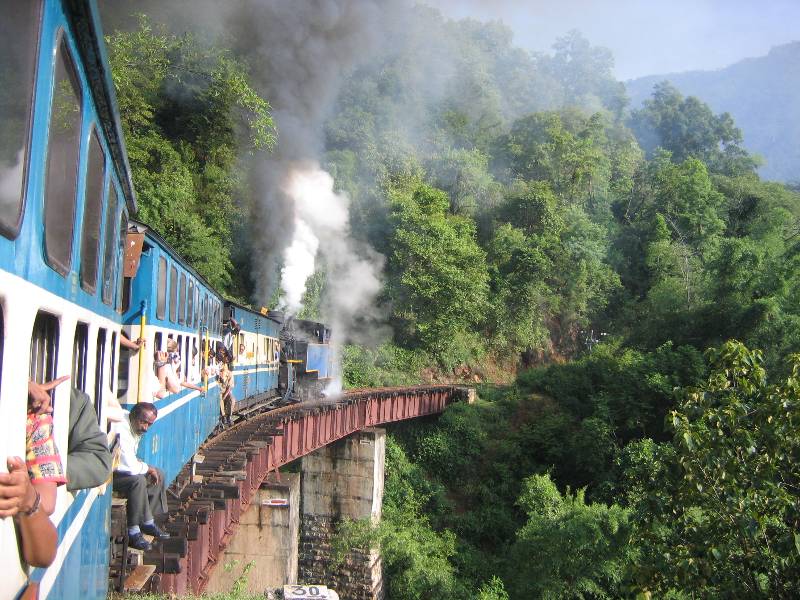|
Traveling
Travel is the movement of people between distant geographical locations. Travel can be done by foot, bicycle, automobile, train, boat, bus, airplane, ship or other means, with or without luggage, and can be one way or round trip. Travel can also include relatively short stays between successive movements, as in the case of tourism. Etymology The origin of the word "travel" is most likely lost to history. The term "travel" may originate from the Old French word ''travail'', which means 'work'. According to the Merriam-Webster dictionary, the first known use of the word ''travel'' was in the 14th century. It also states that the word comes from Middle English , (which means to torment, labor, strive, journey) and earlier from Old French (which means to work strenuously, toil). In English, people still occasionally use the words , which means struggle. According to Simon Winchester in his book ''The Best Travelers' Tales (2004)'', the words ''travel'' and ''travail'' both ... [...More Info...] [...Related Items...] OR: [Wikipedia] [Google] [Baidu] |
Vacation
A vacation (American English) or holiday (British English) is either a leave of absence from a regular job or school or an instance of leisure travel away from home. People often take a vacation during specific holiday observances or for specific festivals or celebrations. Vacations are often spent with friends or family. Vacations may include a specific trip or journey, usually for the purpose of recreation or tourism. A person may take a longer break from work, such as a sabbatical, gap year, Holiday entitlement or career break. The concept of taking a vacation is a recent invention, and has developed through the last two centuries. Historically, the idea of travel for recreation was a luxury that only wealthy people could afford (see Grand Tour). In the Puritan culture of early America, taking a break from work for reasons other than weekly observance of the Sabbath was frowned upon. However, the modern concept of vacation was led by a later religious movement encou ... [...More Info...] [...Related Items...] OR: [Wikipedia] [Google] [Baidu] |
Pilgrimage
A pilgrimage is a travel, journey to a holy place, which can lead to a personal transformation, after which the pilgrim returns to their daily life. A pilgrim (from the Latin ''peregrinus'') is a traveler (literally one who has come from afar) who is on a journey to a holy place. Typically, this is a physical journey (often on foot) to some place of special significance to the adherent of a particular religious belief system. Background Pilgrimages frequently involve a journey or search of morality, moral or spirituality, spiritual significance. Typically, it is a journey to a shrine or other location of importance to a person's beliefs and faith, although sometimes it can be a metaphorical journey into someone's own beliefs. Many religions attach spiritual importance to particular places: the place of birth or death of founders or saints, or to the place of their "calling" or spiritual awakening, or of their connection (visual or verbal) with the divine, to locations where ... [...More Info...] [...Related Items...] OR: [Wikipedia] [Google] [Baidu] |
Baggage
Baggage, or luggage, consists of bags, cases, and containers which hold a traveler's personal articles while the traveler is in transit. A modern traveler can be expected to have packages containing clothing, toiletries, small possessions, trip necessities. On the return trip, travelers may have souvenirs and gifts. For some people, luggage and the style thereof is representative of the owner's wealth and status. Luggage is constructed to protect the items during travel either with a hard shell or a durable soft material. Luggage often has internal subdivisions or sections to aid in securing items. Handles are typically provided to facilitate carrying, and some luggage may have wheels and/or telescoping handles or leashes to make moving them easier. Baggage (not luggage), or '' baggage train'', can also refer to the train of people and goods, both military and of a personal nature, which commonly followed pre-modern armies on campaign. Overview Luggage has changed over time. ... [...More Info...] [...Related Items...] OR: [Wikipedia] [Google] [Baidu] |
Mount Everest
Mount Everest (), known locally as Sagarmatha in Nepal and Qomolangma in Tibet, is Earth's highest mountain above sea level. It lies in the Mahalangur Himal sub-range of the Himalayas and marks part of the China–Nepal border at its summit. Its height was most recently measured in 2020 by Chinese and Nepali authorities as . Mount Everest attracts many climbers, including highly experienced mountaineers. There are two main climbing routes, one approaching the summit from the southeast in Nepal (known as the standard route) and the other from the north in Tibet. While not posing substantial technical climbing challenges on the standard route, Everest presents dangers such as altitude sickness, weather, and wind, as well as hazards from avalanches and the Khumbu Icefall. As of May 2024, 340 people have died on Everest. Over 200 bodies remain on the mountain and have not been removed due to the dangerous conditions. Climbers typically ascend only part of Mount Eve ... [...More Info...] [...Related Items...] OR: [Wikipedia] [Google] [Baidu] |
Human Migration
Human migration is the movement of people from one place to another, with intentions of settling, permanently or temporarily, at a new location (geographic region). The movement often occurs over long distances and from one country to another (external migration), but internal migration (within a single country) is the dominant form of human migration globally.World Migration Report' Migration is often associated with better human capital at both individual and household level, and with better access to migration networks, facilitating a possible second move. It has a high potential to improve human development, and some studies confirm that migration is the most direct route out of poverty. Age is also important for both work and non-work migration. People may migrate as individuals, in family units or in Mass migration, large groups. There are four major forms of migration: invasion, conquest, colonization and emigration/immigration. People moving from their home due to force ... [...More Info...] [...Related Items...] OR: [Wikipedia] [Google] [Baidu] |
Charity (practice)
Charity is the Volunteering, voluntary provision of assistance to those in need. It serves as a Humanitarianism, humanitarian act, and is unmotivated by self-interest. Various Philosophy, philosophies about charity exist, with frequent associations with religion. Etymology The word ''charity'' originated in late Old English to mean a "Christianity, Christian love for one's fellows", and until at least the beginning of the 20th century, this meaning remained synonymous with charity. Apart from this original meaning, ''charity'' is etymologically linked to Christianity, with the word originally entering the English language through the Old French word , which derived from the Latin , a word commonly used in the Vulgate New Testament to translate the Greek word (), a distinct form of Love (religious views)#Christian, love. Over time, the meaning of ''charity'' has evolved from "Christian love" to "providing for those in need; generosity and giving" (cf. ''offertory''), a transiti ... [...More Info...] [...Related Items...] OR: [Wikipedia] [Google] [Baidu] |
Volunteer Travel
International volunteering is when volunteers volunteering, contribute their time to work for organisations or causes outside their home countries. International volunteering has a long association with international development or environment, with the aim of bringing benefits to host communities. It can include a range of services, from healthcare advancement to economic development to governance. Trends show that international volunteering has become increasingly popular across many countries over the past few decades. International volunteering is a broad term which is used to capture multi-year, skilled placements as well as short term roles. The term ''voluntourism'' has become common to describe certain types of volunteering organised by governments, charities and travel agents. History On a large scale, workcamps after World War I and early missionary service were the first expressions of international service. Formal overseas volunteering can be traced back over one hundr ... [...More Info...] [...Related Items...] OR: [Wikipedia] [Google] [Baidu] |
Research
Research is creative and systematic work undertaken to increase the stock of knowledge. It involves the collection, organization, and analysis of evidence to increase understanding of a topic, characterized by a particular attentiveness to controlling sources of bias and error. These activities are characterized by accounting and controlling for biases. A research project may be an expansion of past work in the field. To test the validity of instruments, procedures, or experiments, research may replicate elements of prior projects or the project as a whole. The primary purposes of basic research (as opposed to applied research) are documentation, discovery, interpretation, and the research and development (R&D) of methods and systems for the advancement of human knowledge. Approaches to research depend on epistemologies, which vary considerably both within and between humanities and sciences. There are several forms of research: scientific, humanities, artistic, eco ... [...More Info...] [...Related Items...] OR: [Wikipedia] [Google] [Baidu] |
Recreation
Recreation is an activity of leisure, leisure being discretionary time. The "need to do something for recreation" is an essential element of human biology and psychology. Recreational activities are often done for happiness, enjoyment, amusement, or pleasure and are considered to be "fun". Etymology The term ''recreation'' appears to have been used in English first in the late 14th century, first in the sense of "refreshment or curing of a sick person", and derived turn from Latin (''re'': "again", ''creare'': "to create, bring forth, beget"). Prerequisites to leisure People spend their time on activities of daily living, Employment, work, sleep, social duties and leisure, the latter time being free from prior commitments to physiologic or social needs, a prerequisite of recreation. Leisure has increased with increased longevity and, for many, with decreased hours spent for physical and economic survival, yet others argue that time pressure has increased for modern people, as the ... [...More Info...] [...Related Items...] OR: [Wikipedia] [Google] [Baidu] |
Traveler Motorcycle
Traveler(s), traveller(s), The Traveler, or The Traveller may refer to: People *Anyone engaged in travel Groups * Romani people, or Roma, or Gypsies, and their subgroups in various countries * Indigenous Norwegian Travellers * Irish Travellers * Gutter punks, often associated with punk subculture * New Age travellers Individuals * List of people known as the Traveller Arts and entertainment Fictional characters * The Traveler (''Star Trek'') * The Traveller (James Herbert) * Travellers, in the novel '' Earthworks'' by Brian Aldiss * Travelers, in D.J. MacHale's '' Pendragon'' novel series *''The Traveler'', in the video game '' Destiny'' *Traveler, the protagonist of 2020 video game '' Genshin Impact'' Films * ''The Traveler'' (1974 film), an Iranian drama * ''Traveller'' (1981 film), an Irish film starring Davy Spillane * ''Traveler'' (1983 film), a Taiwanese film written by Wu Nien-jen * ''Traveller'' (1997 film), an American crime drama * ''Traveller'' (1999 film ... [...More Info...] [...Related Items...] OR: [Wikipedia] [Google] [Baidu] |
Oxford University Press
Oxford University Press (OUP) is the publishing house of the University of Oxford. It is the largest university press in the world. Its first book was printed in Oxford in 1478, with the Press officially granted the legal right to print books by decree in 1586. It is the second-oldest university press after Cambridge University Press, which was founded in 1534. It is a department of the University of Oxford. It is governed by a group of 15 academics, the Delegates of the Press, appointed by the Vice Chancellor, vice-chancellor of the University of Oxford. The Delegates of the Press are led by the Secretary to the Delegates, who serves as OUP's chief executive and as its major representative on other university bodies. Oxford University Press has had a similar governance structure since the 17th century. The press is located on Walton Street, Oxford, Walton Street, Oxford, opposite Somerville College, Oxford, Somerville College, in the inner suburb of Jericho, Oxford, Jericho. ... [...More Info...] [...Related Items...] OR: [Wikipedia] [Google] [Baidu] |
Bullock Cart
A bullock cart or ox cart (sometimes called a Carriage#Bullock carriage, bullock carriage when carrying people in particular) is a two-wheeled or four-wheeled vehicle pulled by oxen. It is a means of transportation used since ancient times in many parts of the world. They are still used today where modern vehicles are too expensive or less suitable for the local infrastructure. Used especially for carrying goods, the bullock cart is pulled by one or several oxen. The cart is attached to an ox team by a special chain attached to yokes, but a rope may also be used for one or two animals. The driver, and any other passengers, sit on the front of the cart, while load (if there is any) is placed in the back. Traditionally, the cargo has been agrarian goods and lumber. History The first indications of the use of a wagon (cart tracks, incisions, model wheels) are dated to around 4400 BC. The oldest wooden wheels usable for transport were found in southern Russia and dated to 3325 ± 1 ... [...More Info...] [...Related Items...] OR: [Wikipedia] [Google] [Baidu] |










